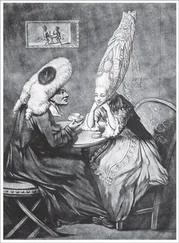Bill Bryson - Notes from a small Island
Здесь есть возможность читать онлайн «Bill Bryson - Notes from a small Island» весь текст электронной книги совершенно бесплатно (целиком полную версию без сокращений). В некоторых случаях можно слушать аудио, скачать через торрент в формате fb2 и присутствует краткое содержание. Жанр: Современная проза, на английском языке. Описание произведения, (предисловие) а так же отзывы посетителей доступны на портале библиотеки ЛибКат.
- Название:Notes from a small Island
- Автор:
- Жанр:
- Год:неизвестен
- ISBN:нет данных
- Рейтинг книги:4 / 5. Голосов: 2
-
Избранное:Добавить в избранное
- Отзывы:
-
Ваша оценка:
- 80
- 1
- 2
- 3
- 4
- 5
Notes from a small Island: краткое содержание, описание и аннотация
Предлагаем к чтению аннотацию, описание, краткое содержание или предисловие (зависит от того, что написал сам автор книги «Notes from a small Island»). Если вы не нашли необходимую информацию о книге — напишите в комментариях, мы постараемся отыскать её.
Notes from a small Island — читать онлайн бесплатно полную книгу (весь текст) целиком
Ниже представлен текст книги, разбитый по страницам. Система сохранения места последней прочитанной страницы, позволяет с удобством читать онлайн бесплатно книгу «Notes from a small Island», без необходимости каждый раз заново искать на чём Вы остановились. Поставьте закладку, и сможете в любой момент перейти на страницу, на которой закончили чтение.
Интервал:
Закладка:
It was the illuminations that had brought me there. I had been hearing and reading about them for so long that I was genuinely keen to see them. So, after securing a room in a modest guesthouse on a back street, I hastened to the front in a sense of some expectation. Well, all I can say is that Blackpool's illuminations are nothing if not splendid, and they are not splendid. There is, ofcourse, always a danger of disappointment when you finally encounter something you have wanted to see for a long time, but in terms of letdown it would be hard to exceed Blackpool's light show. I thought there would be lasers sweeping the sky, strobe lights tattooing the clouds and other gaspmaking dazzlements. Instead there was just a rumbling procession of old trams decorated as rocket ships or Christmas crackers, and several miles of paltry decorations on lampposts. I suppose if you had never seen electricity in action, it would be pretty breathtaking, but I'm not even sure of that. It all just seemed tacky and inadequate on rather a grand scale, like Blackpool itself.
What was no less amazing than the meagreness of the illuminations were the crowds of people who had come to witness the spectacle. Traffic along the front was bumper to bumper, with childish faces pressed to the windows of every creeping car, and there were masses of people ambling happily along the spacious promenade. At frequent intervals hawkers sold luminous necklaces and bracelets or other shortlived diversions, and were doing a roaring trade. I read somewhere once that half of all visitors to Blackpool have been there at least ten times. Goodness knows what they find in the place. I walked for a mile or so along the prom, and couldn't understand the appeal of it and I, as you may have realized by now, am an enthusiast for tat. Perhaps I was just weary after my long journey from Porthmadog, but I couldn't wake up any enthusiasm for it at all. I wandered through brightly lit arcades and peered in bingo halls, but the festive atmosphere that seemed to seize everyone failed to rub off on me. Eventually, feeling very tired and very foreign, I retired to a fish restaurant on a sidestreet, where I had a plate of haddock, chips and peas, and was looked at like I was some kind of southern pansy when I asked for tartare sauce, and afterwards took yet another early night.
In the morning, I got up early to give Blackpool another chance. I liked it considerably better by daylight. The promenade had some nice bits of cast iron and elaborate huts with onion domes selling rock, nougat and other sticky things, which had escaped me in the darkness the night before, and the beach was vast and empty and very agreeable. Blackpool's beach is seven miles long and the curious thing about it is that it doesn't officially exist. I am not making this up. In the late 1980s, when the European Community issued a directive about minimum standards of oceanborne sewage, it turned out that nearly every British seaside town failed to come anywhere near even the minimum levels. Most of the bigger places like Blackpool went right off the edge of the turdometer, or whatever it is they measure these things with. This presented an obvious problem to the Government, which was loath to spend money on British beaches when there were perfectly good beaches for rich people in Mustique and Barbados, so it drew up a policy under which it officially decreed this is so bizarre I can hardly stand it, but I swear it is true that Brighton, Blackpool, Scarborough and many other leading resorts did not have, strictly speaking, bathing beaches. Christ knows what they then termed these expanses of sand intermediate sewage buffers, I suppose but in any case it disposed of the problem without either solving it or costing the Exchequer a penny, which is, of course, the main thing, or in the case of the present Government, the only thing.
But enough of political satire! Let us away in haste to Morecambe. I went there next, on a series of rattling Sprinters, partly to make poignant comparisons with Blackpool, but mostly because I like Morecambe. I'm not at all sure why, but I do.
Looking at it now, it is hard to believe that not so very long ago Morecambe rivalled Blackpool. In fact, starting in about 1880 and for many decades afterwards, Morecambe was the northern English seaside resort. It had Britain's first seaside illuminations. It was the birthplace of bingo, lettered rock and the helterskelter. During the celebrated Wakes Weeks, when whole northern factory towns went on holiday together (they called Morecambe BradfordbySea), up to 100,000 visitors at a time flocked to its boardinghouses and hotels. At its peak it had two mainline railway stations, eight music halls, eight cinemas, an aquarium, a funfair, a menagerie, a revolving tower, a boating garden, a Summer Pavilion, a Winter Gardens, the largest swimmingpool in Britain, and two piers.
One of these, the Central Pier, was one of the most beautiful and elaborate in Britain, with fabulous towers and domed roofs an Arabian palace afloat on Morecambe Bay.
It had over a thousand boardinghouses catering for the masses, but also classier diversions for those with more extravagant ambitions. The Old Vie and Sadler's Wells spent whole seasons there. Elgar conducted orchestras in the Winter Gardens and Nellie Melba sang. And it was the home of many hotels that were the equal of any in Europe, like the Grand and the Broadway, where in the early 1900s wellheeled patrons could choose between a dozentypes of hydro bath, including 'Needle, Brine, Foam, Plombiere and Scotch Douche'.
I know all this because I had been reading a book called Lost Resort: The Flow and Ebb of Morecambe, by a local vicar named Roger K. Bingham, which was not only exceptionally well written (and it is quite extraordinary, let me say here, how much good local history there is in this country) but full of photos of Morecambe from its heyday that were just staggeringly at variance with the scene I found before me now as I stepped from the train, one of only three passengers to alight, and ambled out into the sunny but breathtakingly faded charms of Marine Road.
It is hard to say when or why Morecambe's decline started. It remained popular well into the 1950s as late as 1956 it had 1,300 hotels and guesthouses, ten times the number it has today but its descent from greatness had begun long before. The famous Central Pier was extensively damaged by a fire in the 1930s, then gradually sank into an embarrassing wreck. By 1990 the town officials had removed it from the local map simply pretended that the derelict heap projecting into the sea, dominating the front, wasn't there. The West End Pier, meanwhile, was swept away by a winter storm in 1974. The magnificent Alhambra music hall burned down in 1970 and the Royally Theatre was razed to make way for a shopping centre two years later.
By the early 1970s Morecambe's decline was precipitate. One by one the local landmarks vanished the venerable swimmingpool in 1978, the Winter Gardens in 1982, the truly sumptuous Grand Hotel in 1989 as people abandoned Morecambe for Blackpool and the Spanish Costas. By the late 1980s, according to Bingham, you could buy a large, onceproud seafront hotel like the fivestorey Grosvenor for the same price as a semidetached house in London.
Today Morecambe's tattered front consists largely of littleused bingo halls and amusement arcades, everythingfor. l shops, and the kind of cutprice boutiques where the clothes are so cheap and undesirable that they can be safely put outside on racks and left unattended. Many of the shops are empty, and most of the rest look temporary. It has become once again irony of ironies BradfordbySea. So low had Morecambe's fortunes sunk that the previous summer the town couldn't even find someone to take on the deckchair concession. When a seaside resort can't find anyone willing to set up deckchairs, you know that business is bad.
Читать дальшеИнтервал:
Закладка:
Похожие книги на «Notes from a small Island»
Представляем Вашему вниманию похожие книги на «Notes from a small Island» списком для выбора. Мы отобрали схожую по названию и смыслу литературу в надежде предоставить читателям больше вариантов отыскать новые, интересные, ещё непрочитанные произведения.
Обсуждение, отзывы о книге «Notes from a small Island» и просто собственные мнения читателей. Оставьте ваши комментарии, напишите, что Вы думаете о произведении, его смысле или главных героях. Укажите что конкретно понравилось, а что нет, и почему Вы так считаете.












